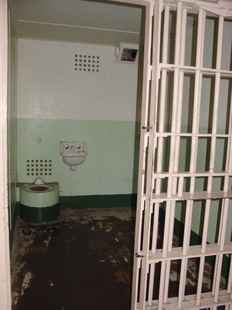Florida Felony Convictions: Incentives to Keep Sentences High

While U.S. Attorney General Eric Holder has announced his agency’s intentions to scrap policies resulting in unnecessarily extensive federal prison terms, at the state level, it seems there is ample incentive to keep criminal sentences as long as possible.
Our Fort Lauderdale criminal defense lawyers know that it comes down to – what else – money. Specifically, Florida, like a number of other states, has outsourced parts of its state prison system.
As the Huffington Post recently reported, these private contracts require that there be certain “lockup quotas” that must be met in order for these facilities to turn a profit. If a certain number of beds are not filled, the state (i.e., taxpayers) have to pay the prison company. That means taxpayers, in effect, must pay a premium for lower crime rates.
In Florida, according to advocacy group In the Public Interest, there are at least seven prison contracts wherein occupancy is required to be held at 90 percent, or else the state has to pay.
What this effectively does is incentivize keeping prison beds filled. Of course, this runs counter to the overall policy goal of reducing crime, reducing recidivism through inmate rehabilitation initiatives and ensuring public safety.
In Arizona, for example, administrators of a 3,300-bed prison deemed by state corrections officials as “dysfunctional” after the escape of three violent inmates sued the state for $10 million for failing to maintain its 97-percent occupancy quota. The state ended up settling for $3 million, but the case illustrates why these situations are so troubling.
These kinds of contracts mean that legislators have little incentive to pursue the kind of aggressive – yet necessary – sentencing reform, like what Holder is touting at the federal level.
Corrections officials say that lockup quotas tend to offer states the best deals from private prison contractors, who otherwise might charge higher rates for the routine, monthly fluctuations in prison population.
Last year, the Florida legislature blocked a plan that would have created the largest private prison system in the U.S. The company, Geo Group Inc. (GEO) is based out of Boca Raton, and has since set its sights on expansion elsewhere in the country. However, that doesn’t mean it won’t be back.
Florida currently contracts with three private prisons systems throughout the state, including GEO.
Had the legislative effort been approved, the state would have moved some 14,500 inmates at more than two dozen prisons and work camps into privatized facilities. The state currently spends some $270 million annually to operate its prisons. Privatization, proponents said, would save $16.5 million annually. However, that figure failed to factor in the lockup quotas those contracts would have undoubtedly required.
Florida has the third-largest inmate population in the country, with a total of about 11,000 privately-run prisons. Total prison population in the state is about 104,300.
But the debate is far from over. Technically, Gov. Rick Scott, who supported the privatization effort, could approve contracts with private-prison operators without a Senate vote. Whether that would be politically advantageous for him remains another matter.
For those facing criminal charges in Florida, the bottom line is that the system as a whole is working against you. In light of this knowledge, having an experienced legal advocate on your side as your case winds through the criminal justice system is a truly invaluable investment.
If you are charged with a crime in Palm Beach or Broward counties, contact the Law Offices of Leifert & Leifert, a Partnership of Former Prosecutors, for a free consultation to discuss your rights. Call 1.888.5.DEFEND.
Additional Resources:
Prison Quotas Push Lawmakers To Fill Beds, Derail Reform, Sept. 19, 2013, By Chris Kirkham, The Huffington Post
More Blog Entries:
Florida Marijuana DUI Cases Still Hazy, Sept. 12, 2013, Fort Lauderdale Criminal Defense Lawyer Blog





